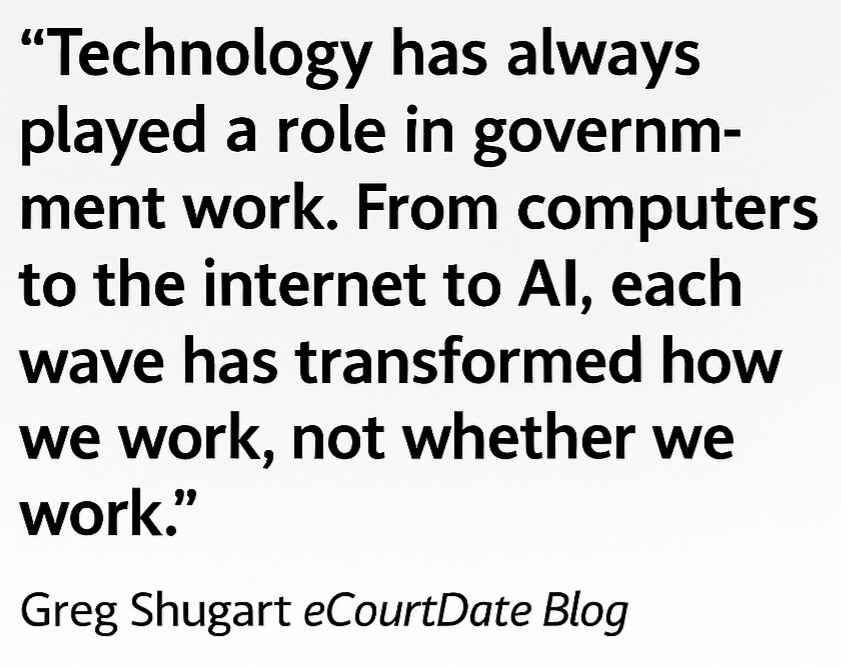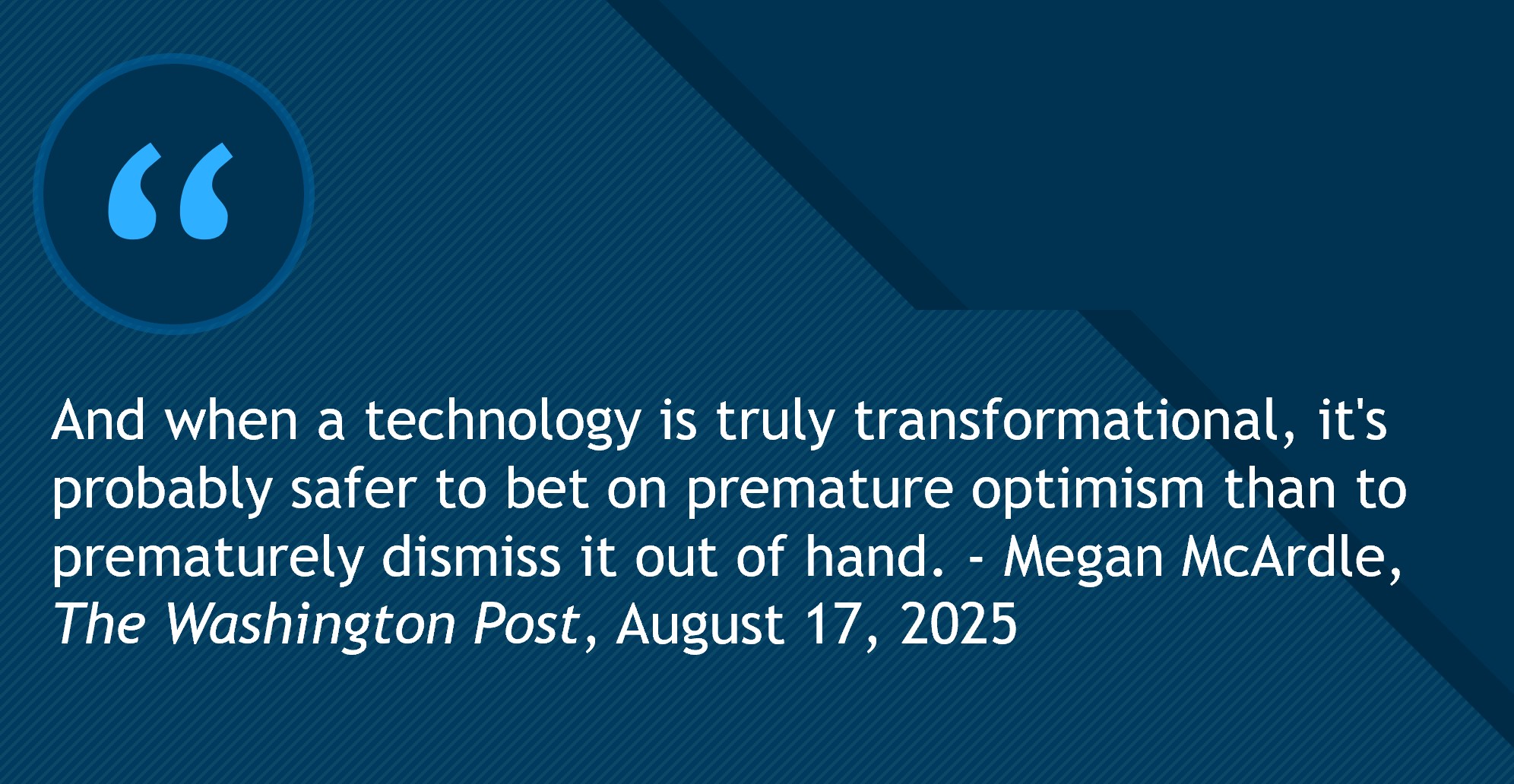A Personal Lens
I was lucky to start my career just as computers were changing the role of budget analysts. What seemed like a threat at first ended up being an opportunity. Instead of replacing workers, technology transformed the work. I learned to use the internet to enhance my job, and today I work for a company that uses artificial intelligence to improve government efficiency. I also admit that I use AI as an editor for posts like this. It doesn't replace my perspective; it helps refine and strengthen it.
The Debate About an AI Bubble
In a recent Washington Post column, Megan McArdle asked whether artificial intelligence is in a bubble that might soon burst (McArdle, 2025). Like past technology cycles, the hype usually comes first, while the real impact takes years to materialize. Investors may worry about speculation, but as McArdle notes, history consistently shows that technology eventually boosts productivity, often in ways we cannot predict at the beginning.
Experience in the Legal World
That observation aligns with my own experience. For over 20 years, I have supported lawyers and legal teams. Throughout all the technological changes, I have not seen a good paralegal lose their job to automation. What changes is the nature of their work. Technology handles the repetitive tasks, allowing people to focus on judgment, relationships, and strategy. AI will follow the same pattern. It will not eliminate the need for skilled professionals but will change how they deliver value.
eCourtDate’s Perspective
At eCourtDate, we take that lesson seriously. Courts and public agencies cannot afford to rely on hype. They need tools that are effective today and will continue to provide value in the long run. Our AI agents manage essential but routine tasks such as messaging, compliance tracking, and court reminders. By automating these tasks, staff can focus on what matters most: supporting people, ensuring fairness, and improving outcomes.

Closing Reflection
Whether or not there is an AI investment bubble, the broader reality remains clear. Technology has always played a role in government work. From computers to the internet to AI, each wave has transformed how we work, not whether we work. For the justice system, the true story isn't about bubbles. It's about progress and the chance to make government more efficient and accessible.
At eCourtDate, we are proud to be creating the first AI-native platform for government workflows. Our goal isn’t hype but lasting impact, assisting courts and public agencies in providing better service through truly effective technology.
Reference
McArdle, M. (2025, August 17). Are we in an AI bubble that’s getting ready to pop? The Washington Post. https://www.washingtonpost.com/opinions/2025/08/17/ai-bubble-productivity-workers/

About Greg Shugart
Director of Government Relations
Greg Shugart brings over 30 years of public sector experience to the eCourtDate team, with a background in court administration, criminal justice reform, and government operations. He previously served as Criminal Courts Administrator for Tarrant County, Texas, where he led statewide-recognized initiatives in pretrial modernization, court communications, and system efficiency. Greg now contributes to eCourtDate’s strategy and partnerships, helping agencies implement technology that improves access, compliance, and trust in the justice system.
